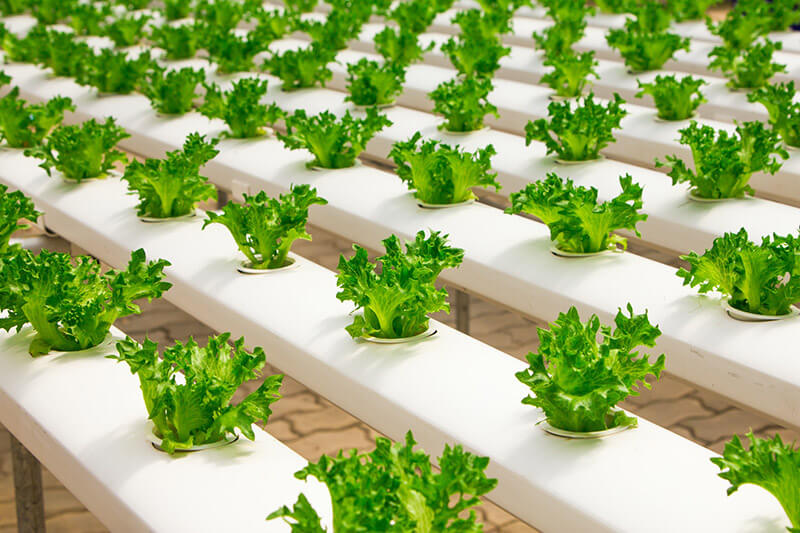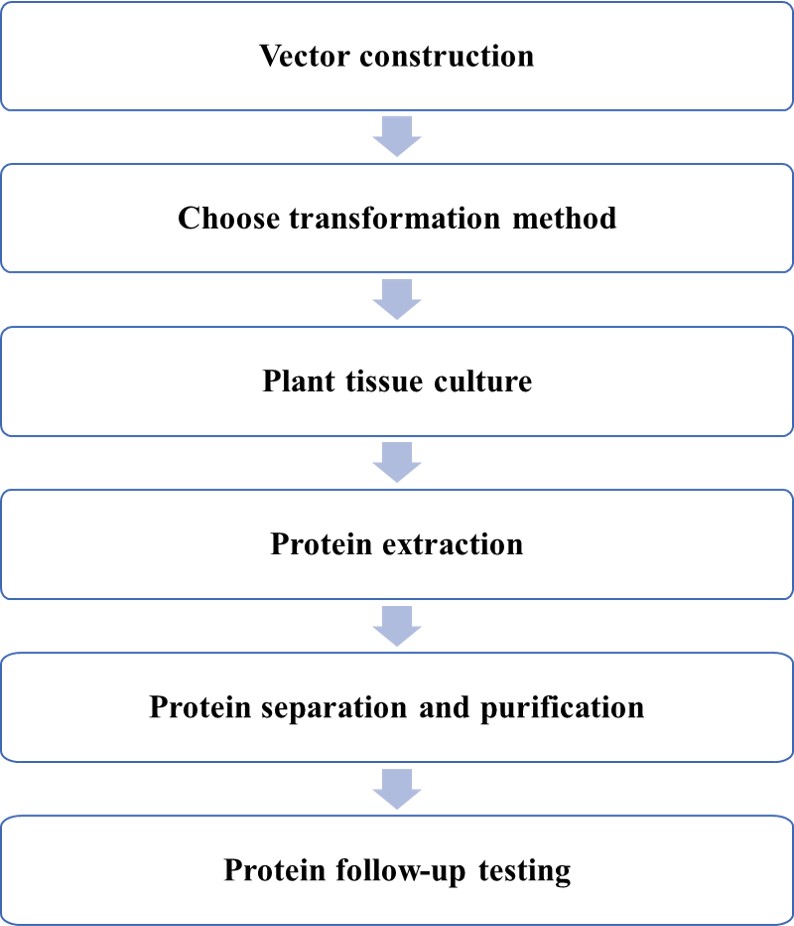Plant protein expression technology has been extensively developed and applied in recent years. The use of plant expression to produce exogenous protein through gene recombination technology is also one of the current hot spots in biotechnology research and development. Compared with other expression systems, plant protein expression systems are inexpensive, easy to grow and produce on a large scale, and have special advantages in gene expression modification and safety. Lactuca sativa L. var. ramosa Hort, as one of the exogenous protein expression model bioreactors, has excellent exogenous protein expression ability. At present, transgenic Lactuca sativa L. var. ramosa Hort can successfully express a variety of foreign proteins, including hepatitis B surface antigen, hepatitis B virus antibody, human growth hormone, viral membrane protein, virus-like particles, etc.

Lifeasible has been researching in the field of plant protein expression systems for many years, and has the most in-depth research on a variety of plant protein expression systems including genome transformation plant protein expression, chloroplast transgenic protein expression, plant transient expression system, suspension cell culture. We can provide customers with a series of one-stop services including vector construction, plant transformation, plant tissue culture, protein extraction, and protein purification. Our services can fully meet the needs of customers to build a stable Lactuca sativa L. var. ramosa Hort protein expression system. The specific protein expression system construction methods are as follows:
The research and industrial planting of genetically modified plants have developed rapidly around the world, and breakthroughs have also been made in the production of various foreign proteins by the expression of genetically modified plants. By constructing exogenous protein genes on plant expression vectors, using Agrobacterium or gene gun transformation methods, the target gene can be transformed into plant cells and integrated into nuclear genome to obtain stable expression of transgenic plants. Synthetic recombinant protein can be stored in leaves, seeds, fruits, tubers and other parts. It can be separated and purified by separation means, or can be used directly by humans as edible vaccines or enzymes, avoiding complex and expensive downstream processing and storage costs of products. The specific experimental process are as follows:
 Figure 1. Construction process of transgenic plant protein expression system
Figure 1. Construction process of transgenic plant protein expression system
Chloroplast genome transformation provides another effective alternative way to express foreign proteins, and its main advantage is the high expression of foreign proteins. A typical Lactuca sativa L. var. ramosa Hort leaf cell can contain 10-100 chloroplasts, and each chloroplast contains 10-100 gene copies. Therefore, the expression level of exogenous protein obtained by chloroplast transformation can be expanded to 100 to 10,000 times, which can reach 5% to 20% of the total soluble protein of the plant.
We use Lactuca sativa L. var. ramosa Hort expressed human proinsulin to reach 47% of the total soluble protein content of leaves. At the same time, chloroplast inheritance is a maternal inheritance and does not require sexual reproduction methods such as pollen transmission, which can avoid ecological safety issues such as gene drift. Another significant advantage is that chloroplast transgenic plants have no positional effects and gene silencing. The transferred foreign gene is inserted into the specific site of the chloroplast through homologous recombination, there is almost no position effect, and the stable expression of the foreign gene is ensured.
The plant protein transient expression system refers to the introduction of foreign genes into plant cells, transcription and translation as extra-genomic material for a certain period of time, and accumulate and express specific products in the transformed cells. The biggest advantage of this system is that the target protein is produced quickly. It is simple and easy to operate, usually can be produced within a few days or weeks. Lifeasible can provide methods for constructing plant protein transient expression systems including Agrobacterium infiltration method and virus infection method. We can simultaneously express more than 20 different idiotypic IgG antibodies in Lactuca sativa L. var. ramosa Hort, and the time from expression to purification of the antibody is within two weeks.
The method of suspension cell culture protein expression system to produce recombinant protein combines many advantages of plant culture, microbial fermentation and animal cell culture. Suspension cells can grow on cheap media like microorganisms, and can also synthesize more complex polymer proteins and glycoproteins like animal cell culture, such as immunoglobulins and other cells. At the same time, the suspension cells do not carry human pathogens, do not produce endotoxins, are not prone to gene drift, and are easy to scale up. Lifeasible has a mature suspension cell protein expression service project, which can meet the needs of customers for large-scale production of foreign proteins using Lactuca sativa L. var. ramosa Hort.
For more information or any inquiry requirements, please contact Lifeasible.